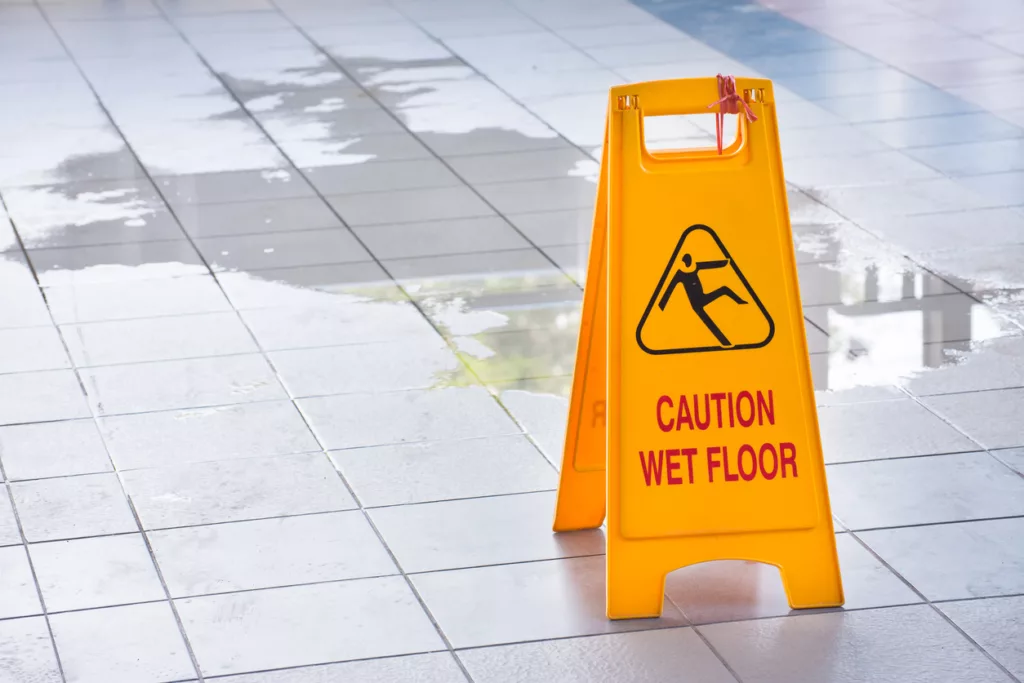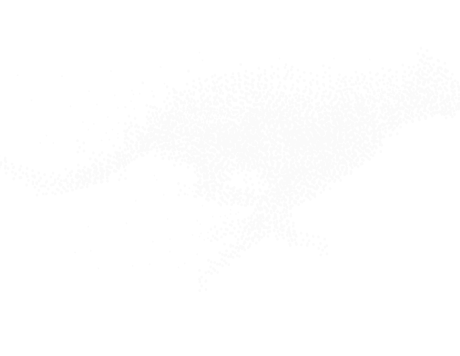Knowing what to say when an insurance adjuster calls you after your slip-and-fall accident is important. The adjuster will probably be friendly and casually ask questions about your accident and injuries. However – make no mistake – the property owner’s insurance company is not on your side.
What you say to the adjuster could potentially diminish the value of your claim. To avoid the risks that come with dealing with an insurance company directly, it is in your best interests to hire a fast-working Connecticut personal injury attorney.
If you or a loved one has suffered a slip-and-fall accident, do not hesitate to contact a personal injury lawyer today. At Gould Injury Law, we pride ourselves on getting our client’s claims settled for maximum compensation as fast as possible. Call 888-WIN-FAST to schedule a free case evaluation with us today.

What Is an Insurance Adjuster’s Job?
An insurance adjuster, also referred to as a claims adjuster, is someone who investigates an insurance claim to determine whether the insurer should pay for damages or injuries. If it is determined the insurance company should pay for damages, the adjuster will then determine how much.
It is important to remember that the adjuster is an advocate for the insurance company. This means that the adjuster is not acting in your best interests. An insurance adjuster’s job is to limit the amount of money paid on a claim.
Why the Insurance Company Is Contacting You After a Connecticut Slip-and-Fall
Over 1 million people visit the emergency room every year from slip-and-fall injuries. You could be entitled to financial compensation if you have been injured in a slip-and-fall accident on someone else’s property. For this reason, you can expect to receive a call from the property owner’s insurance company within a few days of your injury.
It is important to be aware of the insurance company’s priorities, so you know how to react when an adjuster calls you after an accident.
Insurance companies have three main goals:
- Save money: The ultimate goal of the adjuster is to save the insurance company money. The company does not want to pay out a dime more than they have to; lower payouts mean greater profits for the insurer and better bonuses for the adjuster.
- Protect their client: Insurance companies have an obligation to protect the people and companies they insure. If you slipped and fell at a restaurant or grocery store, the insurance company wants to protect the reputation of that business.
- Save time: As the saying goes “time is money.” The faster the insurance company can settle your claim, the quicker the adjuster can move on to other tasks that need to be completed. Insurance companies do not want to spend weeks or months on time-consuming claims.
Speaking to an insurance adjuster after an accident can be stressful. When you hire Gould Injury Law to represent you, our attorneys know how to think even faster than the insurance adjusters. We can handle all communication with the insurance company on your behalf.
Tactics Insurance Companies Use to Avoid Payout of Slip and Fall Claims
Insurance adjusters have their own styles and employ a variety of strategies for handling slip and fall claims. The following are some common tactics used to reduce the amount the company has to payout.
Contacting you shortly after the accident
You may be surprised how soon you hear from the insurance company after an accident. This is one of the tactics they use to minimize the amount they have to pay out – to catch you off guard.
Adjusters often take advantage of the stressful time immediately following a slip-and-fall to try to pressure you into accepting a fast and low settlement offer before you know the extent of your injuries and financial losses.
Adjusters also want accident victims to settle before they have a chance to talk to personal injury law firms such as ours. Insurance companies know that once a victim has a slip and fall lawyer backing them, it will be much harder to achieve a low settlement.
With “The Fast Firm” on your side, you can have the peace of mind you will receive the maximum compensation you are entitled to.
Acting like a friend
Insurance adjusters that call you will probably sound friendly, concerned, and helpful. Remember, the insurance company is not looking out for you. Adjusters want you to trust them and feel comfortable enough to give out information that can be used to devalue your claim.
After chatting with you for a few minutes, the adjuster might ask you to give a recorded statement. Complying is inadvisable. At Gould Injury Law, we recommend again giving a recorded statement without one of our fast-working lawyers present, because anything you say could be manipulated by the adjuster.
Denying your claim
Insurance companies outright deny claims for a variety of reasons. Their hope is that if they deny a claim, you will give up and go away.
Reasons an insurance company may use to deny a slip and fall claim include claiming:
- Your injuries were not caused by the slip-and-fall
- Your injuries are pre-existing
- There is insufficient evidence of injury
- The necessary forms were not properly completed
- You were at fault for the accident
- The policy does not cover your injuries
- You took too long to report the incident
- The property owner is not at fault
If you receive a denial from the insurance company, do not be discouraged. The fast-acting attorneys at our law firm may be able to help you file an appeal or pursue other avenues of compensation.
Making a low settlement offer
Another common tactic insurance companies use is to make a low settlement offer. The initial one is usually far less than what a claim is actually worth.
Phrases that adjusters may say to pressure you into accepting a low offer include:
- “This is the most I can offer”
- “If you do not accept this amount, you may get nothing”
- “This offer is fair and in everyone’s best interests”
- “I am not authorized to offer more than this amount”
- “This is a one-time offer that expires after this phone call”
The adjuster hopes that you will be desperate for money after the accident and accept the first amount put on the table. Do not accept any offer, though, without first consulting with a lawyer from Gould Injury Law. We will work hard to get you a fair settlement offer – and fast.
Shifting the blame to you
Connecticut is a modified comparative fault state. This means that the plaintiff of a slip and fall case is only entitled to financial compensation if he or she is found to be less than 51-percent at fault for the accident. This gives insurance companies an incentive to shift blame to the accident victim and reduce liability.
The insurance company may try to shift the blame on you by claiming you were:
- Distracted by your phone
- Wearing improper footwear
- Failing to be aware of an obvious hazard
- Trespassing
- Made aware of the hazard due to orange cones or warning signs
How to Handle a Call With the Insurance Adjuster Following a Connecticut Slip-and-Fall Accident
If the insurance company contacts you after your slip-and-fall accident, it is important to choose your words wisely. Something that you say could be used to deny or reduce the value of your claim.
When you speak to the insurance adjuster, remember to:
- Ask for contact information. Obtain the name, phone number, insurance agency, and position of the adjuster you are speaking to.
- Do not admit fault. A simple phrase like “I’m sorry” could be misconstrued as an admission of fault. Keep in mind, if you admit responsibility for the fall, the insurance company will not be obligated to pay your claim.
- Provide limited information. It is important that you are honest with the insurance company, but there is some information that you do not need to provide right away. You should give your name, address, and phone number along with the time, date, and location of the accident. However, you do not need to tell them about your job, financial situation, or family medical history.
- Do not discuss your injuries. You may not know the full extent of your injuries or needed treatments in the days following your slip-and-fall. You could find out your injuries are more severe and require greater medical attention than you initially thought.
- Do not give a recorded statement. While the insurer may try to pressure you into a recorded question-and-answer discussion, you are not obligated to give a recorded statement. These recorded sessions are often used to take your words out of context. A recorded statement is not necessary to settle your claim, and it is best to avoid giving one.
- Communicate through your lawyer. When you hire a lawyer from “The Fast Firm” to represent you, we will handle all negotiations with the insurance company. Be assured, your lawyer will work hard to maximize your compensation and get your claim settled as fast as possible.
Contact “The Fast Firm” to Protect Your Right to Financial Recovery
The most important thing you can do to protect your rights after a slip-and-fall is to contact a fast-acting Connecticut personal injury lawyer at Gould Injury Law as quickly as possible. We will handle all communication with the insurance company so that you can focus on your recovery. As your attorneys, we will make sure your claim is not settled for less than its true value.
At Gould Injury Law, we understand how important a financial settlement can be to you and your family after being injured. For this reason, we make it our goal to settle claims for our clients as fast as possible. We also take all slip-and-fall cases on contingency. This means you never pay anything out of pocket for our services.
Our Connecticut slip and fall lawyers will aggressively fight to get your claim settled fast. Schedule a free case evaluation with a member of our legal team today. Start a live chat, complete the contact form, or call us 24/7 at 888-WIN-FAST.
